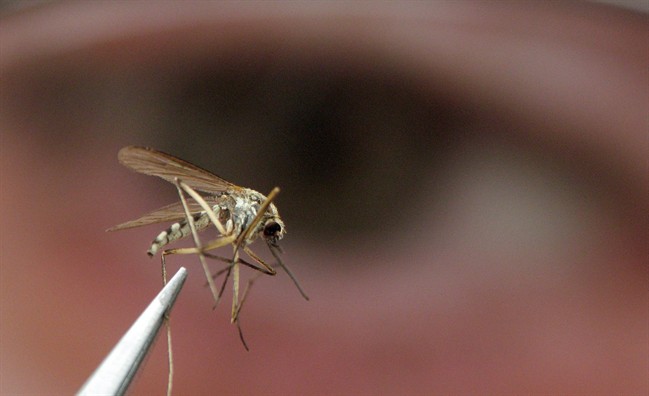Edmontonians might be seeing fewer mosquitoes at this time of year, but there’s another pesky insect to be wary of – wasps.

Mike Jenkins, the senior biological sciences technologist with the City of Edmonton, says yellow-jackets are ready to invade picnics.
“This is the time of year when you’re most likely to encounter yellow-jackets and get stung by them.”
Jenkins said he’s also seen the wasps swarm car grills looking for a feast.
“It’s also getting much much harder to find food. There’s more mouths to feed and they’re getting more and more desperate to find it,” he said. “They’re going farther, they’re going for food sources they wouldn’t have gone for further in the season.”
Jenkins explained the wasp nests are reaching maximum size, because the workers have been bringing back food all summer long.
As for everyone’s other most hated insect?
“The mosquito cycle is kind of on its down-swing. There’s not a lot of recruitment, not a lot of larvae development happening in the fields.”
This season, the height of the mosquito population happened in late May, early June. That’s different than normal; Jenkins said Edmonton usually sees mosquitoes peak in late July.
“The populations that are around now are slowly declining. As the days wind down we’re going to see less and less of the mosquitoes, so that’s good.”
He credits the City of Edmonton’s mosquito larvae treatment program with lower than normal numbers of mosquitoes.
“We’ve had a lot of rain, but a lot of it fell in little patchy areas, here and there, rather than big long dumps that create a lot of mosquito habitat. We were actually able to get out there and treat a lot of those larvae before they turned into adults.”
One other insect creating problems right now impacts plants, not people.
“What we are seeing a lot of is aphids on trees. A number of the aphid species are doing really well right now.”
He said the aphids are mostly attacking elm trees, which have already been hit by European elm scale earlier this year.
According to Jenkins, the best way to protect a tree is to water it regularly.


Comments